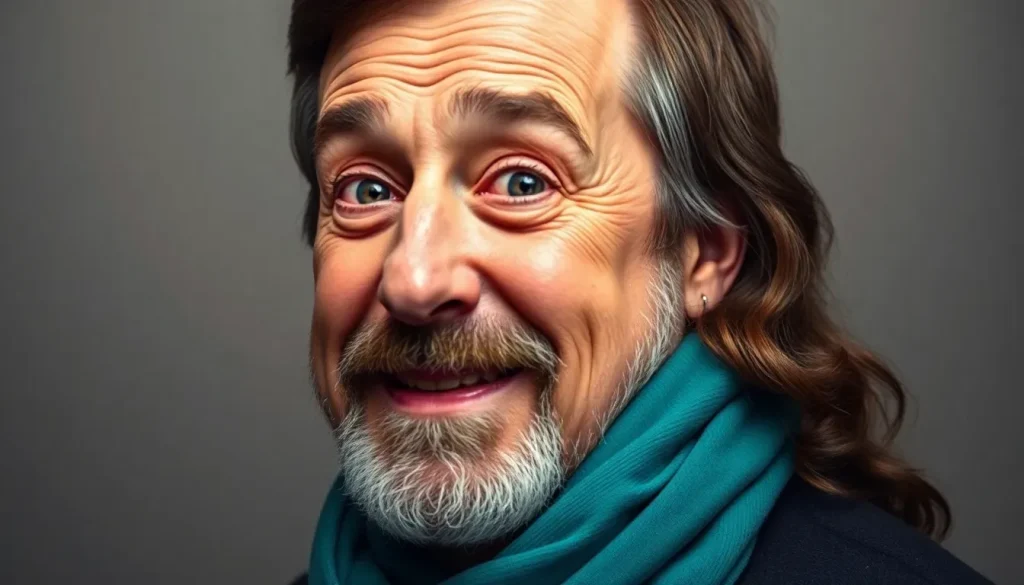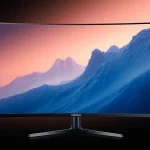Robin Williams' daughter speaks out against AI videos of him

The world of entertainment is grappling with a pressing issue: the ethical implications of artificial intelligence (AI) in recreating the likeness and voice of deceased artists. One of the most poignant voices in this debate comes from Zelda Williams, the daughter of the beloved actor Robin Williams, who has publicly expressed her frustration over AI-generated videos featuring her father's image. This situation raises questions not only about creativity and artistry but also about the respect and dignity owed to the legacies of those who have passed away.
Following the tragic death of Robin Williams in 2014 at the age of 63, fans and the entertainment community were left in shock. Known for his kindness, humor, and profound impact on film and comedy, Williams's passing left a void that many still feel. Now, with the rise of AI technology, his likeness is being used in ways that his family finds deeply distressing. Zelda, a talented actress and director herself, has taken a stand against the misuse of her father's image.
Zelda Williams speaks out against AI misuse
In a heartfelt Instagram Story, Zelda Williams pleaded with fans to stop sending her AI-generated videos of her father. She expressed her frustration, stating, "Please stop sending me AI videos of my dad. Stop believing that I want to see them or that I will understand them; I do not and I will not." Her words resonate with many who feel that the essence of a person should not be reduced to mere digital recreation.
Zelda's message is clear: the use of AI to recreate the likeness of her father is not only invasive but also disrespectful. She emphasized that such creations do not honor his legacy. "It’s a waste of time and energy, and trust me, it’s NOT what he would want," she insisted, highlighting the emotional toll that these practices take on families of deceased artists.
She further criticized the notion that AI-generated content is a form of art, stating, "You’re making disgusting, over-processed sausages with the lives of human beings." This statement underscores a critical view of how AI can trivialize the contributions and legacies of individuals in the arts.
The impact of AI on Hollywood and beyond
Zelda Williams is not alone in her concerns. The film industry is witnessing a growing backlash against the unchecked use of artificial intelligence. Following a prolonged strike in 2023, actors and filmmakers have voiced their worries about how AI threatens their livelihoods. The emergence of AI characters, like Tilly Norwood, has ignited heated discussions about authenticity in performance.
- Tilly Norwood is touted as the first "AI actress," created by the studio Xicoia.
- The character made her debut in a short comedy sketch titled AI Commissioner.
- There are ambitious plans to make Tilly one of the most recognizable faces globally, akin to stars like Scarlett Johansson.
Such developments have alarmed many actors, who fear that the rise of AI could lead to a future where human performances are overshadowed by digital avatars. The ability to create lifelike characters through AI raises troubling questions about the essence of acting and creativity. Critics argue that this shift undermines the emotional depth and connection that only real actors can provide.
Ethical considerations in AI-generated content
The ethical implications of using AI in entertainment are vast and complex. The debate spans several critical issues:
- Consent: The families of deceased artists often do not have a say in how their loved ones' likenesses are used.
- Authenticity: AI can mimic voices and appearances but lacks the emotional nuances that define true artistry.
- Legacy: Using the likeness of deceased individuals risks distorting their legacy and the memories associated with them.
- Impact on creatives: The widespread use of AI could threaten job security for actors and artists.
As technology continues to evolve, the need for ethical guidelines and regulations becomes increasingly urgent. Without a framework to govern the use of AI in the arts, the industry risks losing its humanity—reducing artists to mere algorithms and pixels.
The future of AI in entertainment
As discussions around AI and creativity evolve, the industry faces a critical juncture. The potential for AI to enhance storytelling is significant, but so is the danger of over-reliance on technology at the expense of genuine human connection. Stakeholders in the entertainment sector must engage in meaningful conversations about the role of AI, considering:
- How to balance innovation with respect for artistic integrity.
- The importance of protecting the rights of those whose likenesses are used.
- Developing frameworks for ethical AI use in creative industries.
Ultimately, the future of AI in Hollywood will depend on the choices made today. If the industry can find a way to harness the benefits of AI while honoring the legacies of artists like Robin Williams, it can pave the way for a more respectful and creative future.
For those interested in Zelda Williams's perspective, a compelling video highlighting her views can be found here:




Leave a Reply